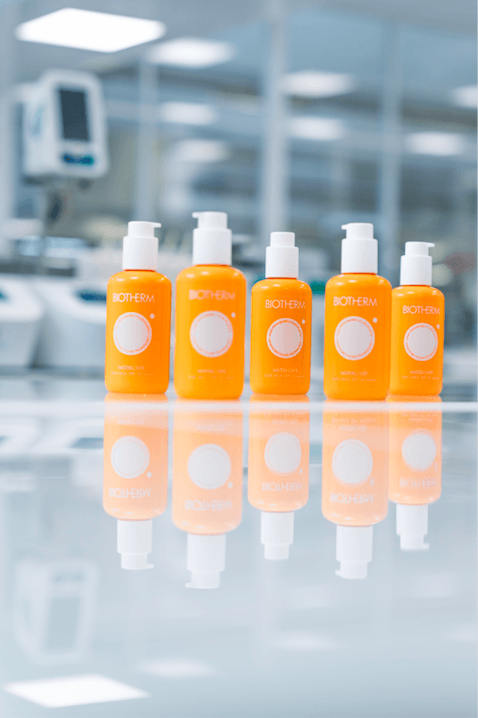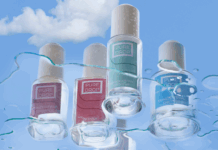L'Oréal announces the production of the world's first fully recycled plastic cosmetic bottle thanks to the enzymatic technology from Carbios and aims to put the bottles resulting from this breakthrough innovation into production in 2025. Biotherm would thus be the first Group brand to launch a product in this bottle of the future.
Carbios' technology, a pioneer in the development of biotechnological processes for PET* plastic recycling, paves the way for the manufacture of new products from 100% recycled materials thanks to its enzymatic process. It has the advantage of being able to process all types of PET - clear, colored, opaque and multilayer - and to recycle these plastics ad infinitum.
Jacques Playe, L'Oréal Packaging and Development Directordeclares : "We have been working with Carbios since 2017 to develop this first bottle based on enzymatically recycled PET, an alternative technology to mechanical recycling. Today, we are pleased to announce its feasibility in the pilot phase, and are delighted to be able to create, with our partners, the packaging of the future. This is a promising innovation for the future, which illustrates our commitment to bringing to market packaging that is more respectful of the planet, and which is part of a circularity approach we have been pursuing for over 15 years".
Giulio Bergamaschi, Biotherm International General Managerdeclares : "Biotherm is a pioneer in eco-responsible cosmetics, and has placed sustainable packaging and waste reduction at the heart of its strategy. We are delighted to be the first cosmetics brand to produce an entirely recycled bottle thanks to Carbios' breakthrough technology".
In 2017, to promote the development of innovative plastic recycling solutions, L'Oréal created a consortium with Carbios to industrialize its technology, which was joined by Nestlé Waters, PepsiCo and Suntory Beverage & Food Europe. Since 2019, L'Oréal has acquired a stake in Carbios through its private equity fund BOLD Business Opportunities for L'Oréal Development.
With "L'Oréal for the Future", L'Oréal's new sustainable development program to 2030, the Group has taken a new step towards a profound transformation of its activities and has set itself ambitious new targets, particularly in terms of packaging:
- - by 2025, 100 % of its plastic packaging will be refillable, reusable, recyclable or compostable;
- - by 2030, 100 % of plastic packaging will be of recycled or biosourced origin, and the Group will no longer use any virgin plastics of fossil origin;
- - 100 % of ingredients used in biobased formulas and materials will be traceable to sustainable sources by 2030.
To achieve these goals, L'Oréal works with several strategic partners to ensure it has the best technologies available. In addition to Carbios, L'Oréal collaborates in particular with Albéa, a leader in cosmetic packaging, with whom the Group developed in 2019 the first cosmetic tube incorporating FSC-certified cardboard; Purecycle, to produce polypropylene (PP) recycled by solvolysis; and LanzaTech and Total, with whom L'Oréal announced in October 2020 a world first: the production of a polyethylene (PE) cosmetic bottle designed from recycled industrial carbon emissions.
*PET : PET plastic (polyethylene terephthalate) is the most commonly recycled plastic.








